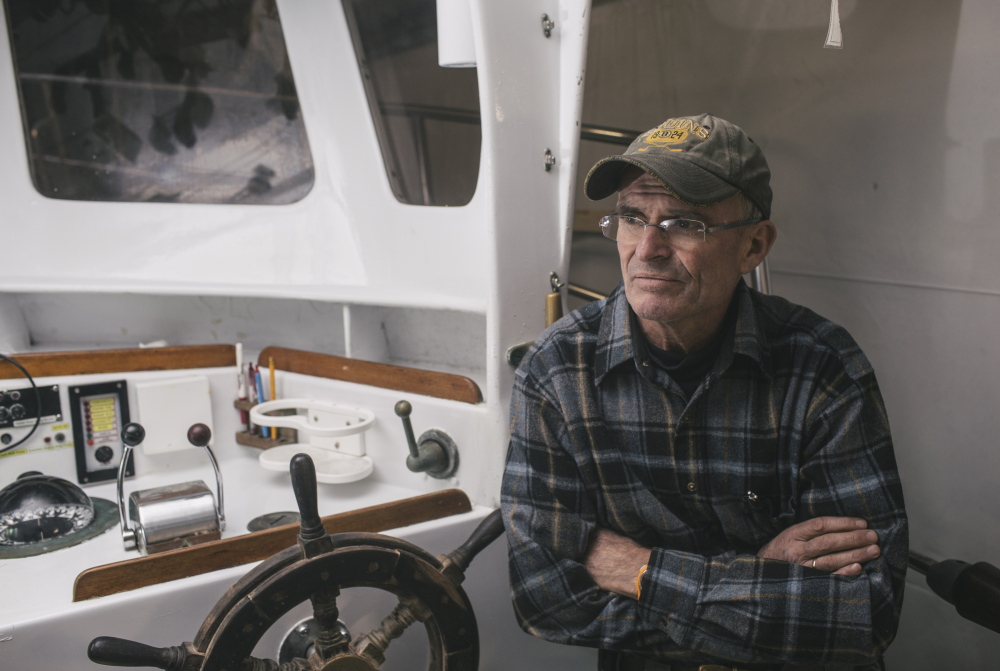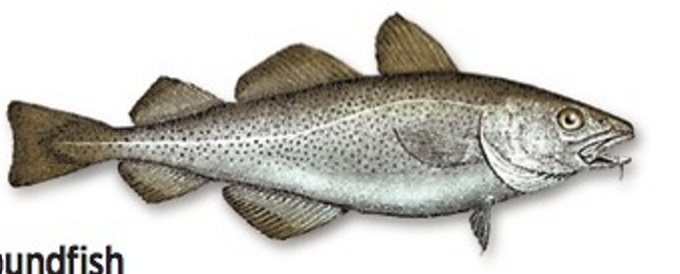Maine boat captains who take recreational fishermen offshore will find out next year if they can stay in business without catching the one fish their customers crave – codfish.
Federal regulators last week approved rules that ban the possession of cod by any recreational fishermen in the Gulf of Maine for the fishing year that starts May 1.
Recreational fishermen could still pack their coolers with other groundfish, such as haddock, redfish and hake, but customers want cod because of its iconic status and because it’s a large fish that provides lots of good-tasting meat, say people who operate boats that cater to recreational fishermen.
The survival of their businesses now will depend on their ability to sell the appeal of other species, says Barry Gibson, captain of a charter boat that operates out of East Boothbay.
“They will have to re-market, reinvent themselves without cod,” he said. “It’s going to be tough.”
Gibson said the ban on cod possession will likely remain for two years, and could possibly last a generation if cod stocks don’t recover. In past years, a ban on cod possession lasted for only a few months. During those months, business dropped by half, said Tim Tower, who runs Bunny Clark Deep Sea Fishing in Ogunquit.
During a recent ban, some of his customers were unhappy when told about the restrictions, he said.
“They said, ‘We won’t be going out fishing again until we can keep cod,’ ” Tower said.
He tells customers that other fish, such as haddock and hake, taste even better, but those fish lack the same appeal because they’re smaller.
Maine’s for-hire fleet consists of two types of boats: charter boats, which carry six or fewer passengers and are chartered by a single group, and larger boats that offer trips to multiple parties.
The recreational fishery is open to anyone who obtains a permit, and limits are imposed on the number of fish a person can possess in a day. For cod, the limit this season was nine.
Maine residents who own their own boats also can obtain saltwater licenses to catch groundfish. The same restrictions apply to them, too.
Maine’s recreational groundfish industry is a fraction of what it was in the 1960s and 1970s, when most harbors in Maine hosted several boats that catered to recreational fishermen.
Today, there are only a half-dozen large boats that offer “deep sea” fishing for groundfish. Those boats are located in southern Maine because of the proximity to Platts Bank and Jeffreys Ledge, areas where groundfish are still found.
In addition, there are about 100 charter boats in Maine. Most pursue striped bass and only about 30 catch groundfish, said Gibson, chairman of the Recreational Advisory Panel for the New England Fishery Management Council.
Federal regulators are imposing new restrictions because cod stocks in the Gulf of Maine have fallen to the lowest level since scientists began tracking the species 40 years ago. The population is 3 percent to 4 percent of the level deemed sustainable.
Tower said he has no doubt that something is seriously wrong with cod stocks. Large cod, particularly the big females that produce lots of eggs, are mostly gone, he said.
The decline began about a decade ago, he said. Before then, he would typically catch 600 to 1,000 individual “trophy fish,” which he defines as a cod larger than 30 pounds.
“We used to make our living on the boat by telling people they could bring home a huge cod,” he said. “Every trip, I could get at least one big one.” Last year, nobody on his boat caught a cod heavier than 20 pounds, he said. This year, the two largest cod weighed 20 pounds and 22 pounds.
Tim Rider, of Saco, one of the small group of commercial fishermen who fish for groundfish with hand gear, such as rod and reel, said federal managers made a mistake a few years ago by setting rules that encourage large draggers to fish heavily in near-shore waters where cod spawn. He said recreational fishermen are now paying a price for a problem they did not create.
“They are not to blame for the fishing situation we are in,” he said.
The National Marine Fisheries Service – an arm of the National Oceanic and Atmospheric Administration – last month imposed a rash of emergency measures that effectively make it impossible for commercial fishermen to pursue cod in the Gulf of Maine, although commercial fishermen can still keep 200 pounds of cod on each trip. Last week, the New England Fishery Management Council voted to extend some of those measures for the fishing year that begins May 1.
The measures apply to cod in the Gulf of Maine but do not apply to Georges Bank, a separate management area in which cod stocks are doing better.
The council last week voted to establish “rolling closures” on fishing grounds where cod are most abundant and where they spawn. Groundfishermen would not be allowed to fish in those areas, which are generally located between Boston and Port Clyde.
Recreational fishermen were pleased that the council rejected a plan to also ban them from the closure areas. Recreational fishermen will be allowed to fish in the areas, but the ban on cod possession also applies to them.
The measures still need final approval from the National Marine Fisheries Service, and administration officials have indicated that the council-endorsed plan may not go far enough and could be modified.
The fisheries service could decide to ban recreational boats from the closed areas altogether. Recreational fishermen would then have nowhere to fish, Gibson said.
“If that happens, we’re all done,” he said. “That will be the end of it right there.”
Send questions/comments to the editors.





Comments are no longer available on this story